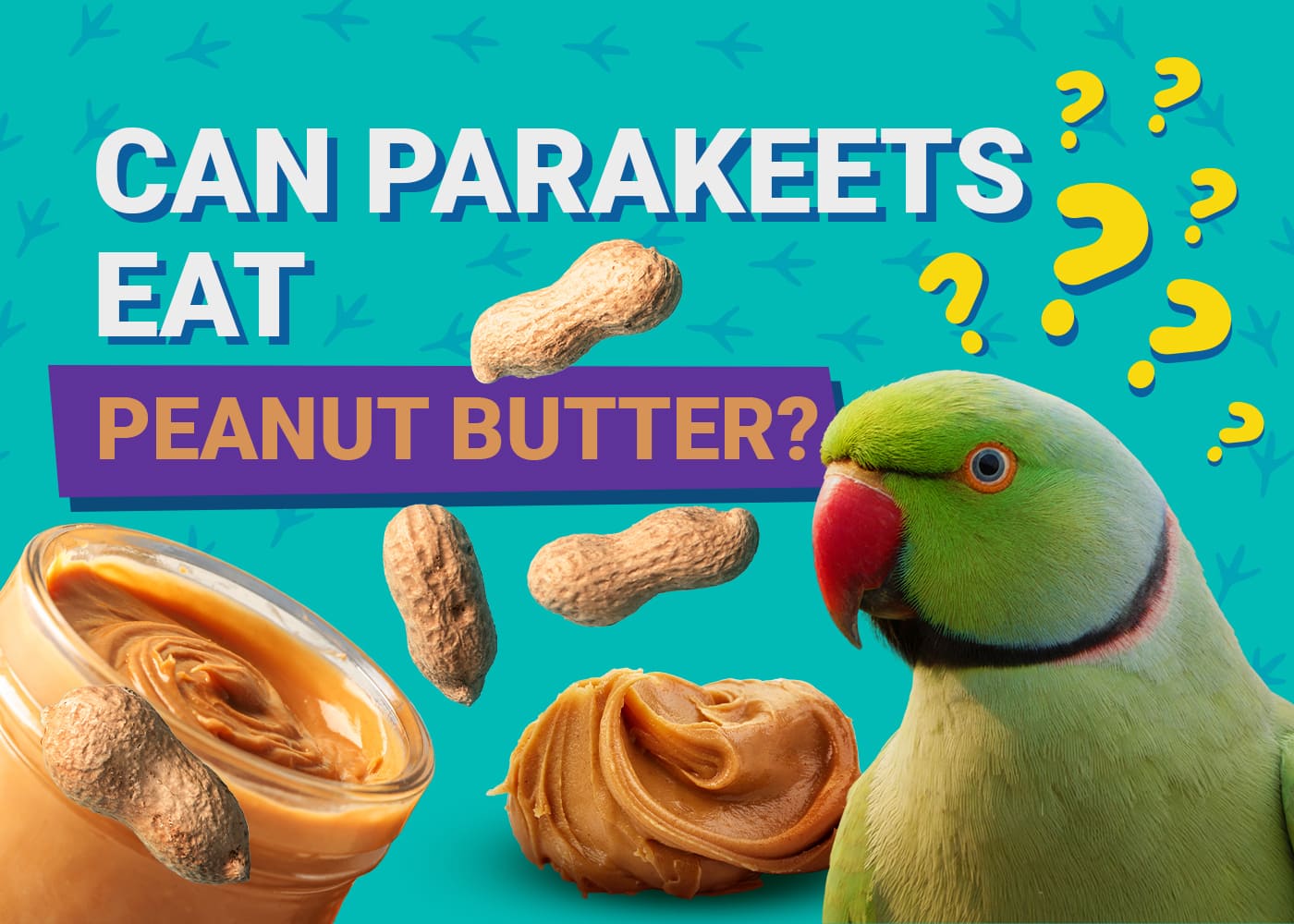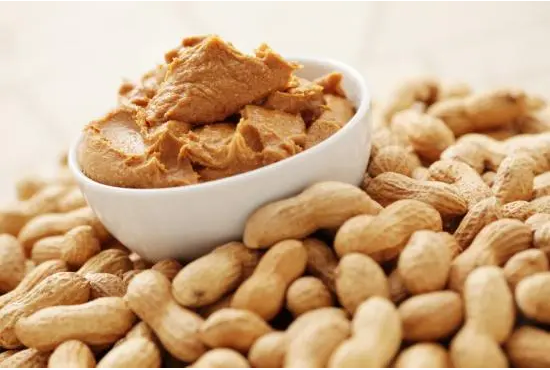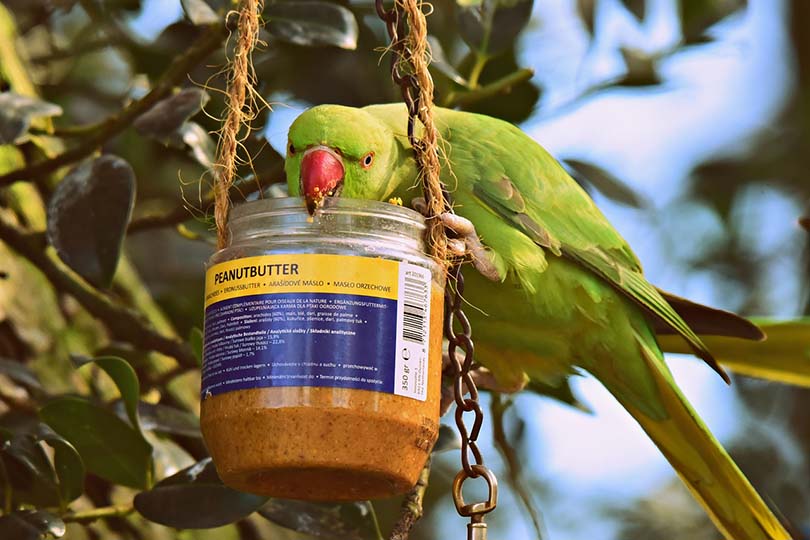Can Parakeets Eat Peanut Butter? A Guide For Pet Owners
Can parakeets eat peanut butter? Discover the benefits and risks of feeding peanut butter to your feathered friend, plus tips on how to serve it safely.
Author:Maya ReyesReviewer:Sophia HarperOct 09, 202352.5K Shares875.8K Views

Can parakeets eat peanut butter? Parakeets should not be given peanut butter. While peanut butter is not toxic to birds, it's not a natural part of their diet and can be difficult for them to digest. Additionally, some peanut butter brands may contain additives like sugar or salt, which can be harmful to birds.
Peanut butter is high in calories, so it should only be fed to parakeets in moderation. Too much peanut butter can lead to weight gain and obesity, which can lead to other health problems. Some peanut butter brands contain added sugar and salt, which can also be harmful to parakeets. It is also important to avoid giving your parakeet peanut butter that contains aflatoxins, which are toxic to birds.
Parakeets can eat peanut butter, but only in moderation. Peanut butter is a good source of protein and other nutrients that can be beneficial for parakeets. However, it is important to choose a natural peanut butter with no added sugar or salt. You should also avoid giving your parakeet peanut butter that contains aflatoxins, which are toxic to birds.
Peanut butter is a good source of protein, which is essential for parakeets to build and repair muscle tissue. Peanut butter also contains other important nutrients, such as healthy fats, vitamins, and minerals. Feeding peanut butter to your parakeet in moderation can help them stay healthy and active.
If you're looking for suitable treats for your parakeet, it's best to stick to bird-safe options like fresh fruits and vegetables. These provide essential nutrients and are much better suited to their digestive systems.
Always consult with a veterinarian who specializes in avian care if you're unsure about what foods are safe for your specific pet bird.
Understanding Parakeet Diets
Natural Diet Of Parakeets In The Wild
Parakeets are herbivores, meaning that their natural diet consists of plants. In the wild, parakeets eat a variety of seeds, fruits, vegetables, and flowers. They also eat insects on occasion.
Here is a more detailed look at the natural diet of parakeets,
- Seeds -Seeds are a major part of the parakeet's diet in the wild. Some of the most common seeds that parakeets eat include millet, canary seed, and safflower seed.
- Fruits -Parakeets also enjoy eating a variety of fruits. Some of their favorite fruits include apples, bananas, grapes, and berries.
- Vegetables -Parakeets also eat a variety of vegetables. Some of their favorite vegetables include carrots, broccoli, and spinach.
- Flowers -Parakeets also enjoy eating a variety of flowers. Some of their favorite flowers include dandelions, clover, and hibiscus.
- Insects -Parakeets will also eat insects on occasion, such as crickets and mealworms.
Importance Of Providing A Balanced And Species-appropriate Diet
It is important to provide your parakeet with a balanced and species-appropriate diet. This will help them to stay healthy and active.
A balanced diet for a parakeet should contain a variety of seeds, fruits, vegetables, and flowers. It is important to avoid feeding your parakeet too many seeds, as this can lead to obesity. You should also avoid feeding your parakeet foods that are high in sugar and salt, as these can also be harmful to their health.
Here are some tips for providing your parakeet with a balanced and species-appropriate diet,
- Offer your parakeet a variety of seeds, fruits, vegetables, and flowers.
- Avoid feeding your parakeet too many seeds.
- Avoid feeding your parakeet foods that are high in sugar and salt.
- Supplement your parakeet's diet with a high-quality pellet food.
- Provide your parakeet with fresh, clean water at all times.
By following these tips, you can help to ensure that your parakeet enjoys a long and healthy life.
Peanut Butter And Parakeets - A Critical Analysis
Nutritional Components Of Peanut Butter
- Protein content -Peanut butter is a good source of protein, which is essential for parakeets to build and repair muscle tissue. One tablespoon of peanut butter contains approximately 4 grams of protein.
- Healthy fats -Peanut butter is also a good source of healthy fats, such as monounsaturated and polyunsaturated fats. These fats are essential for parakeet health and can help to improve their cholesterol levels and reduce their risk of heart disease. One tablespoon of peanut butter contains approximately 8 grams of healthy fats.
- Vitamins and minerals -Peanut butter is a good source of several vitamins and minerals, including vitamins E and B6, niacin, magnesium, and phosphorus. These nutrients are essential for parakeet health and can help to boost their immune system, improve their digestion, and maintain their overall health.
Potential Benefits
- Protein for muscle health -The protein in peanut butter can help parakeets to build and repair muscle tissue. This is especially important for young parakeets who are still growing, and for older parakeets who may be experiencing muscle loss.
- Nutrient supplementation -Peanut butter can be a good way to supplement a parakeet's diet with additional nutrients, such as vitamins, minerals, and healthy fats. This can be especially beneficial for parakeets who are not eating a balanced diet, or for parakeets who have health problems.
Risks And Drawbacks
- Digestive difficulties -Peanut butter is a high-fat food, and too much peanut butter can cause digestive difficulties for parakeets, such as diarrhea and vomiting. It is important to feed peanut butter to parakeets in moderation.
- Additives in commercial peanut butter -Some commercial peanut butter brands contain added sugar, salt, and other additives that can be harmful to parakeets. It is important to choose a natural peanut butter with no added ingredients for your parakeet.
- Choking hazard -Peanut butter can be a choking hazard for parakeets, especially if it is given to them in large chunks. It is important to spread peanut butter thinly on a piece of toast or a bird biscuit before giving it to your parakeet. You can also mix peanut butter with birdseed or other food that your parakeet enjoys.
- Caloric density and obesity risk -Peanut butter is a high-calorie food, and too much peanut butter can lead to obesity in parakeets. Obesity can lead to a number of health problems, such as heart disease, diabetes, and arthritis. It is important to feed peanut butter to parakeets in moderation and to provide them with plenty of opportunities to exercise.
Peanut butter can be a healthy and nutritious treat for parakeets, but it is important to feed it in moderation and to choose a natural peanut butter with no added ingredients.
- You can make your own peanut butter treats for your parakeet by mixing peanut butter with birdseed, millet, or other safe foods.
- Offer your parakeet a variety of treats, including peanut butter, fruits, vegetables, and nuts.
- Avoid feeding your parakeet processed foods, sugary drinks, and other unhealthy foods.
- Monitor your parakeet's weight and adjust their diet accordingly.
Expert Insights And Veterinary Recommendations
Share Insights From Avian Veterinarians On Feeding Peanut Butter To Parakeets
Avian veterinarians generally recommend that peanut butter be fed to parakeets in moderation. Peanut butter can be a good source of protein and other nutrients for parakeets, but it is important to be aware of the potential risks associated with feeding peanut butter to birds.
One of the main concerns with feeding peanut butter to parakeets is the risk of digestive upset. Peanut butter is a high-fat food, and too much peanut butter can cause diarrhea and vomiting in parakeets. It is also important to note that some peanut butter brands contain added sugar and salt, which can also be harmful to parakeets.
Another concern with feeding peanut butter to parakeets is the risk of choking. Peanut butter can be a choking hazard for parakeets, especially if it is given to them in large chunks. It is important to spread peanut butter thinly on a piece of toast or a bird biscuit before giving it to your parakeet. You can also mix peanut butter with birdseed or other food that your parakeet enjoys.
Finally, it is important to be aware that peanut butter is a high-calorie food. Too much peanut butter can lead to obesity in parakeets, which can lead to a number of health problems, such as heart disease, diabetes, and arthritis. It is important to feed peanut butter to parakeets in moderation and to provide them with plenty of opportunities to exercise.
Alternatives For Treats And Supplements That Are Safer And More Beneficial
There are a number of safer and more beneficial alternatives to feeding peanut butter to parakeets. Some good alternatives include,
- Fruits and vegetables - Fruits and vegetables are a healthy and nutritious treat for parakeets. Some good options include apples, bananas, grapes, berries, carrots, broccoli, and spinach.
- Nuts - Nuts are another good source of protein and nutrients for parakeets. Some good options include almonds, walnuts, and cashews.
- Birdseed - Birdseed is a staple of the parakeet diet and should be the main component of their diet. However, it is important to choose a high-quality birdseed mix that contains a variety of seeds.
- Pellets - Pellets are a good way to supplement a parakeet's diet with additional nutrients. Pellets are typically made from a variety of grains, seeds, and vegetables, and they provide parakeets with a balanced diet.
If you are concerned about your parakeet's diet, it is always best to consult with an avian veterinarian. They can help you to create a diet that is tailored to your parakeet's individual needs.
Serve Peanut Butter To Your Parakeet Safely
Here are some tips for serving peanut butter to your parakeet safely,
- Choose a natural peanut butter with no added sugar or salt. Some brands of peanut butter contain added sugar and salt, which can be harmful to parakeets.
- Serve peanut butter in moderation. Peanut butter is a high-calorie food, so it is important to feed it to parakeets in moderation. Too much peanut butter can lead to obesity and other health problems.
- Spread peanut butter thinly. Peanut butter can be a choking hazard for parakeets, so it is important to spread it thinly on a piece of toast or a bird biscuit before giving it to them. You can also mix peanut butter with birdseed or other food that your parakeet enjoys.
- Clean up any uneaten peanut butter promptly. Peanut butter can attract mold and bacteria, so it is important to clean up any uneaten peanut butter promptly.
Here are some specific ways to serve peanut butter to your parakeet,
- Spread a small amount of peanut butter on a piece of toast or a bird biscuit. This is a simple way to serve peanut butter to your parakeet and it is also relatively safe. Just be sure to spread the peanut butter thinly and to remove the toast or bird biscuit from your parakeet's cage after a few hours.
- Stuff a peanut butter-filled toy with your parakeet's favorite treats. This is a more interactive way to serve peanut butter to your parakeet and it can also help to keep them entertained. Just be sure to choose a toy that is made from a safe material and that is not too large for your parakeet to choke on.
- Mix a small amount of peanut butter with birdseed or other food that your parakeet enjoys. This is a good way to serve peanut butter to your parakeet if they are hesitant to eat it on its own. Just be sure to mix the peanut butter well with the other food so that your parakeet does not choke on it.
- Offer your parakeet a peanut butter-covered pine cone or other safe object to chew on. This is a good way to give your parakeet a peanut butter treat without having to worry about them choking on it. Just be sure to choose a safe object that is not too large for your parakeet to choke on and that is not poisonous.
No matter how you choose to serve peanut butter to your parakeet, be sure to monitor them closely to make sure that they are not having any adverse reactions.
Frequently Asked Questions
What Are Parakeets Favorite Food?
Parakeets love broccoli florets, dark leafy greens, finely chopped carrots, sweet potatoes, and other veggies. A seed mix is not going to provide adequate nutrition. You need to be feeding a nutritionally balanced diet. Pellets are an option, but parakeets love whole seeds.
Can I Give My Parakeet Honey?
Never be tempted to add honey or other sweeteners, though; and don't be tempted by recipes that suggest a boiled egg and a couple of digestive sweet biscuits can do the trick. No biscuits sold for human consumption are suitable for budgies, due to their added sugar, salt and fat.
Do Parakeets Need To Eat Everyday?
Parakeets have a very active metabolism and can easily become ill if they go without food for 24 hours. Parakeets should be provided with a staple diet of fresh parakeet seed or pellets daily. Be sure to check the food dish daily, as they will only eat from the top of what is offered.
Conclusion
Can parakeets eat peanut butter? Parakeets should not be given peanut butter. In the quest to provide the best for our parakeets, it's essential to be discerning about their dietary choices. Through this guide, we've navigated the nuanced landscape of whether parakeets can safely consume peanut butter. While this creamy spread may be a staple in our kitchens, it's not a natural fit for our feathered companions.
When choosing a peanut butter for your parakeet, be sure to select a natural brand with no added sugar or salt. You should also avoid peanut butter that contains aflatoxins, which are toxic to birds.
There are a number of ways to serve peanut butter to your parakeet safely. You can spread a small amount of peanut butter on a piece of toast or a bird biscuit. You can also stuff a peanut butter-filled toy with your parakeet's favorite treats. Another option is to mix a small amount of peanut butter with birdseed or other food that your parakeet enjoys. Finally, you can offer your parakeet a peanut butter-covered pine cone or other safe object to chew on.
If you are unsure whether or not a particular peanut butter is safe for your parakeet, it is always best to err on the side of caution and avoid giving it to them.

Maya Reyes
Author
Maya Reyes’s wanderlust was sparked in the temples of Luang Prabang, where the scent of lemongrass and the chants of monks revealed the transformative power of travel.
Since then, her journey has been defined by cultural immersion and authentic connections. From learning batik in Indonesia to sharing meals with nomadic families in Mongolia, Maya seeks experiences that highlight the human stories behind each destination.
Travel for her is a way to weave her narrative into the world’s cultural tapestry, creating bridges across diverse ways of life. Maya has traveled to 15 countries and shares her insights through writing and storytelling.

Sophia Harper
Reviewer
Sophia Harper’s photography acts as a portal to the soul of the places she visits. Drawn to South America’s landscapes and cultures, she has spent years capturing everything from the majesty of ancient ruins to the vibrancy of urban streets.
Sophia’s work isn’t just about documenting moments; it’s about evoking the emotions and stories behind them. A dedicated photographer, she has worked with local communities across South America to capture their rich cultural narratives through her lens.
Latest Articles
Popular Articles

